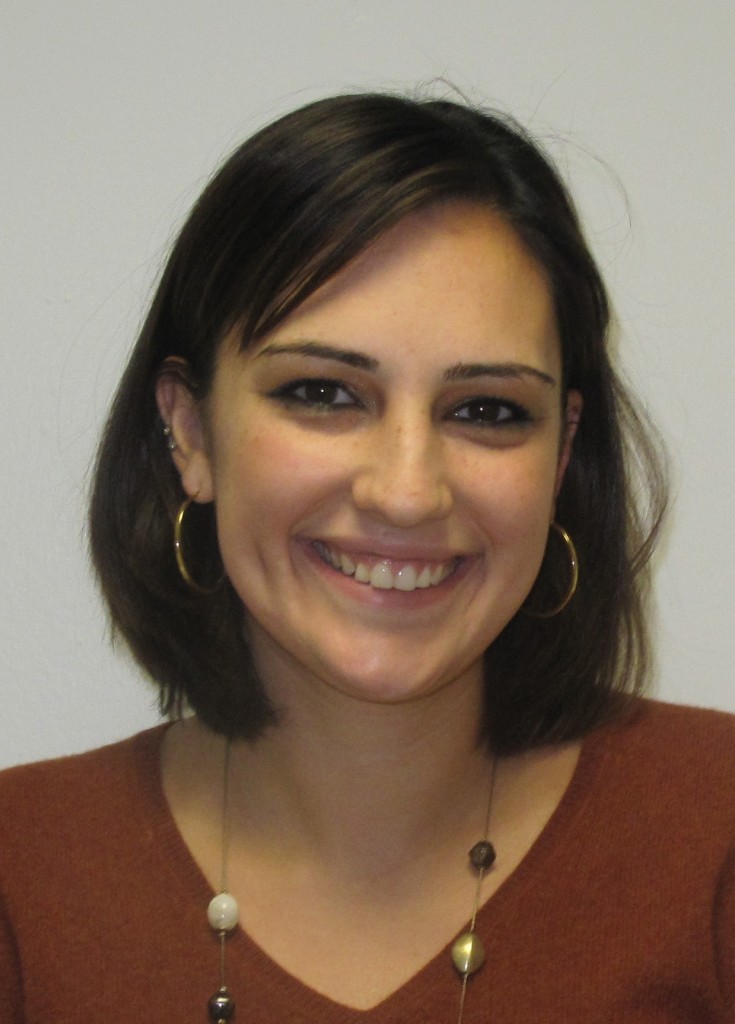
Evidence-based Rheumatoid Arthritis Treatment: A Self-assessment Program
Rheumatology
Curriculum:
Evidence-based Rheumatoid Arthritis Treatment
Evidence-based Rheumatoid Arthritis Treatment
Credits:
1 ANCC Contact Hours 1 AMA PRA Category 1 Credit(s) ™
1 ANCC Contact Hours 1 AMA PRA Category 1 Credit(s) ™
Launch Date:
January 13, 2015
January 13, 2015
Expiration Date:
The accreditation for this activity has expired.
The accreditation for this activity has expired.
Primary Audience:
Rheumatologists; Physician Assistants; Nurses; Nurse Practitioners; and other healthcare providers who treat patients with RA
Relevant Terms:
Rheumatoid arthritis; biologic therapy; ACR quality measures
Michael York, MD
Michael York, MD
CME Course Director
Assistant Professor of Medicine
Boston University School of Medicine
Boston, MA
Bio
 Dr. York is an Assistant Professor of Medicine at Boston University Medical Center and specializes in rheumatoid arthritis, systemic sclerosis and lupus. Dr. York has expertise in the clinical evaluation and management of patients with a variety of auto-immune disorders. He is involved as an investigator in clinical trials in systemic sclerosis and lupus.
Dr. York is an Assistant Professor of Medicine at Boston University Medical Center and specializes in rheumatoid arthritis, systemic sclerosis and lupus. Dr. York has expertise in the clinical evaluation and management of patients with a variety of auto-immune disorders. He is involved as an investigator in clinical trials in systemic sclerosis and lupus.Tuhina Neogi, MD
Tuhina Neogi, MD
Associate Professor of Medicine
Boston University School of Medicine
Boston, MA
Bio
 Dr. Neogi is an Associate Professor of Medicine in the Boston University School of Medicine, and Associate Professor of Epidemiology in the Boston University School of Public Health. She is presently Associate Chair of the Clinical Epidemiology Research and Training Unit, a member of the Section of Rheumatology, and an Evans Educator Co-Director of Evidence-Based Medicine in the Department of Medicine. She is a member of the FDA Arthritis Advisory Committee and other arthritis-related committees at a national and international level. Dr. Neogi has a PhD in Epidemiology and is actively involved in clinical research, with research funding from the National Institutes of Health, Arthritis Foundation, and American College of Rheumatology. With her epidemiology and biostatistics background, she has applied and developed novel research methodology in her own studies. Dr. Neogi was a member of the executive steering committee that developed the ACR/EULAR 2010 Rheumatoid Arthritis Classification Criteria. Her research interests include epidemiology-related studies of osteoarthritis and gout, and development and validation of outcome measures and classification criteria for various rheumatic diseases. In addition to research, patient care, and teaching, Dr. Neogi mentors a number of junior faculty, rheumatology fellows, postdoctoral research fellows, and graduate students.
Dr. Neogi is an Associate Professor of Medicine in the Boston University School of Medicine, and Associate Professor of Epidemiology in the Boston University School of Public Health. She is presently Associate Chair of the Clinical Epidemiology Research and Training Unit, a member of the Section of Rheumatology, and an Evans Educator Co-Director of Evidence-Based Medicine in the Department of Medicine. She is a member of the FDA Arthritis Advisory Committee and other arthritis-related committees at a national and international level. Dr. Neogi has a PhD in Epidemiology and is actively involved in clinical research, with research funding from the National Institutes of Health, Arthritis Foundation, and American College of Rheumatology. With her epidemiology and biostatistics background, she has applied and developed novel research methodology in her own studies. Dr. Neogi was a member of the executive steering committee that developed the ACR/EULAR 2010 Rheumatoid Arthritis Classification Criteria. Her research interests include epidemiology-related studies of osteoarthritis and gout, and development and validation of outcome measures and classification criteria for various rheumatic diseases. In addition to research, patient care, and teaching, Dr. Neogi mentors a number of junior faculty, rheumatology fellows, postdoctoral research fellows, and graduate students.Naomi Amudala, NP
Naomi Amudala, NP
CNE Course Advisor
Clinical Instructor and Nurse Practitioner
Vasculitis Center/Rheumatology
Boston University School of Medicine
Boston, MA
Bio
 Naomi A. Amudala has been a Clinical Instructor in the Boston University School of Medicine since 2009. As part of the Boston University Vasculitis Center, she is a nurse practitioner who specializes in vasculitis and is a co-investigator for a number of clinical trials in vasculitis. In addition to her research, she also has an interest in general rheumatology and enjoys caring for patients who have a variety of rheumatic diseases. She received her Master's degree in Nursing from the Massachusetts General Hospital (MGH) Institute of Health Professions.
Naomi A. Amudala has been a Clinical Instructor in the Boston University School of Medicine since 2009. As part of the Boston University Vasculitis Center, she is a nurse practitioner who specializes in vasculitis and is a co-investigator for a number of clinical trials in vasculitis. In addition to her research, she also has an interest in general rheumatology and enjoys caring for patients who have a variety of rheumatic diseases. She received her Master's degree in Nursing from the Massachusetts General Hospital (MGH) Institute of Health Professions.Christophe Richez, MD, PhD
Christophe Richez, MD, PhD
Professor of Medicine, Rheumatology
Bordeaux University
Bordeaux, France
Bio
 Dr. Richez is Professor of Medicine at Bordeaux University Medical Center and specializes in rheumatoid arthritis, spondyloarthritis and lupus. Dr. Richez has expertise in the clinical evaluation and management of patients with a variety of auto-immune disorders. He is involved as an investigator in clinical trials in rheumatoid arthritis and lupus, and his translational research focuses on lupus and rheumatoid arthritis pathogenesis.
Dr. Richez is Professor of Medicine at Bordeaux University Medical Center and specializes in rheumatoid arthritis, spondyloarthritis and lupus. Dr. Richez has expertise in the clinical evaluation and management of patients with a variety of auto-immune disorders. He is involved as an investigator in clinical trials in rheumatoid arthritis and lupus, and his translational research focuses on lupus and rheumatoid arthritis pathogenesis.| 1. | Articulate increased confidence in the identification of RA and recognize which patients will or will not likely benefit from use of biological therapies | 2. | Decide when patients will likely benefit from the use of monotherapy or combination therapy |
| 3. | List the benefits and the safety risks of available and pending therapies for RA treatment | 4. | List current recommendations for monitoring patients with RA who are on monotherapy or combination therapy |
| 1. | Articulate increased confidence in the identification of RA and recognize which patients will or will not likely benefit from use of biological therapies |
| 2. | Decide when patients will likely benefit from the use of monotherapy or combination therapy |
| 3. | List the benefits and the safety risks of available and pending therapies for RA treatment |
| 4. | List current recommendations for monitoring patients with RA who are on monotherapy or combination therapy |
Educational Needs Addressed
Current literature indicates that rheumatologists are not providing optimal care when managing patients with RA. Practice gaps include: 1) challenges in early and accurate diagnosis; 2) lack of knowledge and competence regarding assessment of RA disease activity and appropriate monitoring; 3) variation in treatment; 4) lack of knowledge and competence determining whether and when monotherapy or combination therapeutic treatment is suitable; 5) challenges in identifying the benefits and safety risks of available therapies including drug interactions
Faculty
Disclosures
Boston University School of Medicine asks all individuals involved in the development of Continuing Medical Education (CME) activities to disclose all relationships with commercial interests. This information is disclosed to CME activity participants. Boston University School of Medicine has procedures to resolve any apparent conflicts of interest. In addition, faculty members are asked to disclose when any unapproved use of pharmaceuticals and devices is being discussed.
Michael York, MD
CME Course Director
Assistant Professor of Medicine
Boston University School of Medicine
Faculty has no relevant financial relationships with any commercial interest and does not plan on discussing unlabeled/investigational uses of a commercial product.
Tuhina Neogi, MD, PhD
Associate Professor of Medicine
Boston University School of Medicine
Faculty has no relevant financial relationships with any commercial interest and does not plan on discussing unlabeled/investigational uses of a commercial product.
Christophe Richez, MD, PhD
Professor of Medicine, Rheumatology
Bordeaux University,
Bordeaux, France
Faculty is on the speakers bureau at AbbVie, Bristol-Myers Squibb, Chugai, MSD Pharmaceuticals, Nordic Pharma, and Roche. He is a consultant and is on the speakers bureau at Pfizer and UCB. He receives grant/research support from Roche/Chugai. He does not plan on discussing unlabeled/investigational uses of a commercial product.
Naomi Amudala, RN, FNP-BC
CNE Course Advisor
Clinical Instructor and Nurse Practitioner
Vasculitis Center/Rheumatology
Boston University School of Medicine
Faculty has no relevant financial relationships with any commercial interest and does not plan on discussing unlabeled/investigational uses of a commercial product.
Accreditation Planning
Patti-Ann Collins, DNP, MSN/MBA, RN, Lead Nurse Planner, has no relevant financial relationships with any commercial interest.
Jody Walker, MS, planner, has no relevant financial relationships with any commercial interest.
Julie White, MS, planner, has no relevant financial relationships with any commercial interest.
ACCREDITATION STATEMENTS
Boston University School of Medicine is accredited by the Accreditation Council for Continuing Medical Education to provide continuing medical education for physicians.
Boston University School of Medicine designates this enduring educational activity for a maximum of 1.0 AMA PRA Category 1 Credit(s)™. Physicians should claim only the credit commensurate with the extent of their participation in the activity.
Continuing Nursing Education Provider Unit, Boston University School of Medicine is accredited as a provider of continuing nursing education by the American Nurses Credentialing Center's Commission on Accreditation.
CNE Contact Hours: 1.0 all of which are eligible for Pharmacotherapeutic credit.
Nurses will receive contact hours after completion of an evaluation and claim for credit form.
Boston University School of Medicine is accredited by the Accreditation Council for Continuing Medical Education to provide continuing medical education for physicians.
Boston University School of Medicine designates this enduring educational activity for a maximum of 1.0 AMA PRA Category 1 Credit(s)™. Physicians should claim only the credit commensurate with the extent of their participation in the activity.
Continuing Nursing Education Provider Unit, Boston University School of Medicine is accredited as a provider of continuing nursing education by the American Nurses Credentialing Center's Commission on Accreditation.
CNE Contact Hours: 1.0 all of which are eligible for Pharmacotherapeutic credit.
Nurses will receive contact hours after completion of an evaluation and claim for credit form.
Estimated time to complete: 1.0 hours
HOW TO RECEIVE CREDIT
By reviewing the course content and successfully completing the post-test and evaluation, physicians are entitled to receive 1.0 AMA PRA category 1 credits™, nurses are entitled to receive 1.0 CNE contact hours, all of which are pharmacology credit worthy. Statement of credit will be available to print from your user history page.
By reviewing the course content and successfully completing the post-test and evaluation, physicians are entitled to receive 1.0 AMA PRA category 1 credits™, nurses are entitled to receive 1.0 CNE contact hours, all of which are pharmacology credit worthy. Statement of credit will be available to print from your user history page.
- Read the learning objectives and faculty disclosures.
- Participate in the activity.
- Successfully complete the post-test, activity evaluation, and claim credit. A post-test score of 70% or higher is required, and you may retake the post-test 3 times to achieve a passing score.
- Your certificate will be available to print from your user history page.
NOTE: EARN ADDITIONAL CREDITS
This activity is part of a curriculum with multiple activities. You will be alerted of the next activity(ies) in the curriculum when they become available. Additional credit is available for each additional activity.
Release Date: 1/13/15
Expiration Date: 1/12/16
Program Code: I.RA15a
For questions about CME, please contact cme@bu.edu or www.bu.edu/cme.
To view Boston University's Privacy Policy, please see http://www.bumc.bu.edu/cme/policies/.
To view RealCME's Privacy Policy, please see http://www.healthcourse.com/privacy/.
Expiration Date: 1/12/16
Program Code: I.RA15a
For questions about CME, please contact cme@bu.edu or www.bu.edu/cme.
To view Boston University's Privacy Policy, please see http://www.bumc.bu.edu/cme/policies/.
To view RealCME's Privacy Policy, please see http://www.healthcourse.com/privacy/.
COMMERCIAL SUPPORT
This activity is supported by an unrestricted educational grant from AbbVie.
This activity is supported by an unrestricted educational grant from Pfizer.
DISCLAIMER
THESE MATERIALS AND ALL OTHER MATERIALS PROVIDED IN CONJUNCTION WITH CONTINUING MEDICAL EDUCATION ACTIVITIES ARE INTENDED SOLELY FOR PURPOSES OF SUPPLEMENTING CONTINUING MEDICAL EDUCATION PROGRAMS FOR QUALIFIED HEALTH CARE PROFESSIONALS. ANYONE USING THE MATERIALS ASSUMES FULL RESPONSIBILITY AND ALL RISK FOR THEIR APPROPRIATE USE. TRUSTEES OF BOSTON UNIVERSITY MAKES NO WARRANTIES OR REPRESENTATIONS WHATSOEVER REGARDING THE ACCURACY, COMPLETENESS, CURRENTNESS, NONINFRINGEMENT, MERCHANTABILITY OR FITNESS FOR A PARTICULAR PURPOSE OF THE MATERIALS. IN NO EVENT WILL TRUSTEES OF BOSTON UNIVERSITY BE LIABLE TO ANYONE FOR ANY DECISION MADE OR ACTION TAKEN IN RELIANCE ON THE MATERIALS. IN NO EVENT SHOULD THE INFORMATION IN THE MATERIALS BE USED AS A SUBSTITUTE FOR PROFESSIONAL CARE.
COURSE VIEWING REQUIREMENTS
| Supported Browsers: Internet Explorer 8.0+ for Windows 2000, 2003, Vista, XP, Windows 7, Windows 8 Google Chrome 28.0+ for Windows, Mac OS, or Linux Mozilla Firefox 23.0+ for Windows, Mac OS, or Linux Safari 6+ for Mac OSX 10.7 and above For video playback, install the latest version of Flash or Quicktime. |





